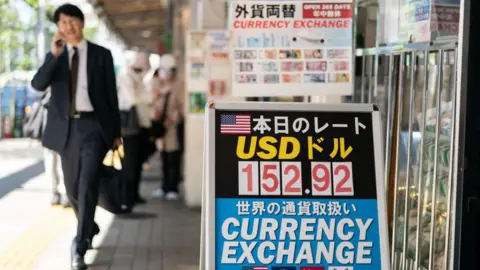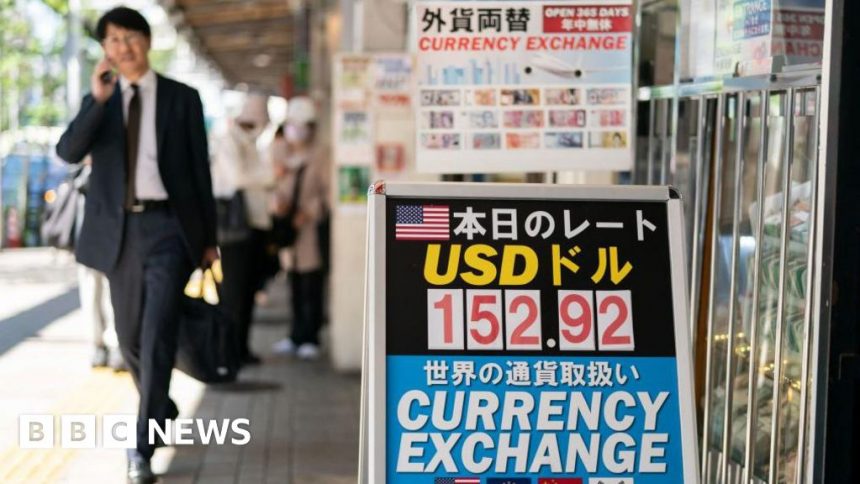Japan hikes interest rates for second time since 2007
 Getty Images
Getty ImagesJapan’s central bank has raised the cost of borrowing for the second time this year as it tries to ease rising prices in the world’s fourth largest economy.
The Bank of Japan (BoJ) increased its key interest rate to “around 0.25%” from the previous range of 0% to 0.1%.
It also outlined a plan to unwind its massive bond buying programme as it eases back from a decade of stimulus measures.
The move comes hours before the US Federal Reserve is set to announce its latest interest rate decision.
In March, the BoJ raised borrowing costs for the first time since 2007.
In 2016, cut its main interest rate below zero in an attempt to stimulate the country’s stagnating economy.
The hike meant that there were no longer any countries in the world left with negative interest rates.
When negative rates are in force people have to pay to deposit money in a bank. They have been used by several countries as a way of encouraging people to spend their money rather than putting it in a bank.
During the pandemic, central banks around the world slashed interest rates as they attempted to counteract the negative impact of border closures and lockdowns.
At the time some countries, including Switzerland and Denmark, as well as the European Central Bank, introduced negative interest rates.
Since then central banks around the world, like the US Federal Reserve and the Bank of England, have raised interest rates to curb soaring prices.





